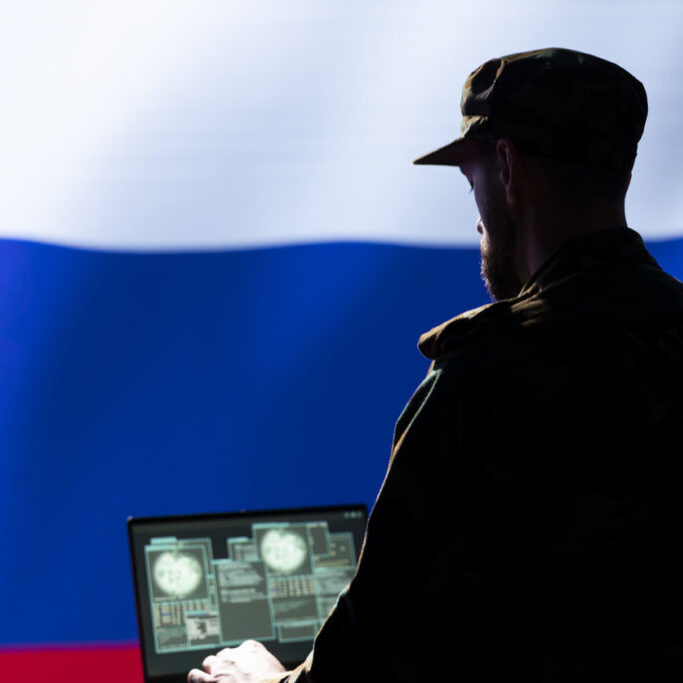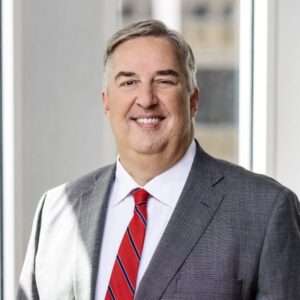Insights < BACK TO ALL INSIGHTS
The Referral was the Easy Part – Where does Gabbard’s Evidence Lead DOJ?
The Referral was the Easy Part – Where does Gabbard’s Evidence Lead DOJ?
By: James Trusty
Americans are used to a considerable level of dirty tricks when it comes to politics. Occasionally, however, a legal line is crossed and a high-level official is either chased out of office, subjected to a criminal prosecution, or both. Ask Richard Nixon, Marvin Mandel, and Bob Menendez. Despite the predictable proclamation from prominent democrats that DNI Director Tulsi Gabbard’s referral is “old news” and “politically motivated,” in reality it is too early to characterize the newly discovered evidence as overwhelming or to call it mere hardball politics. If President Obama decided to completely flip intelligence conclusions about Russian (non) interference in the 2016 election and knowingly set the false information in motion to hobble the incoming president, then we could have a scandal of the highest order. And assuming President Obama in fact pushed the intelligence community to falsely conclude that the Russians helped get Donald Trump elected president, has the Supreme Court’s recent ruling on presidential immunity scuttled any likelihood of a prosecution? We do not know yet if Gabbard’s assertions can be proven beyond a reasonable doubt, but it is not too early to assess some important legal aspects of this budding investigation.
Treason vs. Treacherous
If it is true that President Obama and high-level officials furthered the Hillary Clinton game of manufacturing a Russian dossier to distract and disable President Trump, then what are the crimes that would make up a federal indictment? The word “treason” is thrown around a bit lightly, in my estimation. While conduct and motivation can fairly be characterized as “treasonous,” the actual elements of the crime of treason include either “levying war” against the United States or “adhering and providing comfort” to its enemies. Probably because of the paucity of such circumstances and difficulty in proving that conduct, treason indictments are extremely rare. The only indictment for treason in recent history was lodged against Adam Gadahn, a U.S. citizen who participated in propagandistic Al Queda videos. Gadahn was killed in a drone strike before any lesser form of justice took root. Historically, many of the treason prosecutions have ended in either acquittals, reversals or commutations. President George Washington commuted the Death Penalty against Whiskey Rebellion plotters, Tokyo Rose was pardoned by President Ford after her 1949 conviction for serving as an Imperial Japan propagandist, and John Brown was executed for treason after leading his famous revolt against slavery. In short, do not expect DOJ to display the same inventiveness and singularity in charging President Obama that we saw with the Jack Smith aggression in indicting President Trump.
There are other statutes that could be in play—namely Conspiracy to Deprive Constitutional Rights[1] and Conspiracy to Deprive Rights under Color of Law.[2] Presumably, the constitutional rights implicated by the Russia fraud would be the rights of citizens to freely vote and elect whom they choose and maybe President Trump’s individual right to take office without years of “hobbling” at the hands of conspiring predecessors. The maximum penalty for these crimes, as applied to this non-violent context, would be 10 years and one year of imprisonment, respectively. In addition, when people like James Clapper or Jim Comey addressed Congress about the Russia dossier and their assessment of Russian election interference, they may have opened themselves (as well as co-conspirators) to false statement or perjury prosecutions. Remember, however, the pair of strike outs rung up against John Durham in pursuing false statement convictions—it may be that the general public has begun to catch up with defense attorneys in recognizing that false statement prosecutions are “gotcha” in nature and poor substitutes for prosecuting more substantive crimes.
The Prosecution Team
With the Gabbard referral shoveling declassified information over to DOJ, the next important question is who should investigate the matter? Attorney General Bondi has announced the formation of a strike force to receive the referral. A strike force is truly a situation where the devil is in the details. First, let’s recognize that whether or not DOJ deems the leader of this strike force a Special Counsel, the person at the top will be reporting and coordinating with the Attorney General. Despite the disingenuous distancing done by Attorney General Garland, Jack Smith answered to him from start to finish. The same statutory chain of command will exist whether AG Bondi deputizes a Special Counsel or simply picks a team of federal prosecutors under a U.S. Attorney’s direction.
More importantly, the strike force needs to have quality prosecutors with the character and experience to address a historically important situation. Everyone agreed that Robert Mueller was an honorable man with a great reputation at the time of his appointment to Special Counsel. But Mueller, sadly, was past his prime. His Deputy seemed to run the show with personnel decisions, and as a result we ended up with Peter Strzok, Lisa Page, and Andy McCabe on a monumentally important public corruption probe. Yes, there were others that had more legitimate credentials (Mike Dreeben and Greg Andres leap to mind) but Deputy Weissman handpicked an attorney who had never tried even a single case (Page) and a case agent (Strzok) infected with hatred of Trump and poor judgment spanning both his professional and personal life.
Hurdles and Defenses
Assuming the facts add up to federal crimes, what are the legal and practical obstacles faced by DOJ in pursuing indictments? The statute of limitations is a substantial hurdle to any actual prosecution here. The federal statute of limitations, assuming treason is not a part of the indictment, is five years.[3] This means there would have to be some aspect of the conspiracy taking place within five years of the indictment. The critical decision by President Obama appears to be in December of 2015. False statements to Congress, by my recollection, are similarly earlier than 2020, at least in large part.[4] Any investigation will have to focus heavily on how they avoid the statute or they cannot even ask for an indictment in good faith.[5]
For President Obama, an additional bar on prosecution might be available under the Supreme Court’s ruling regarding presidential immunity in Trump v. United States, 603 U.S. 593 (2024). The Court confirmed that presidents are not liable for engaging in official acts of the presidency, but defining the phrase “official acts” is not as easy as it sounds. Characterizing President Obama’s act as “ordering an intelligence assessment” sounds much more official (and thus, immunized) than “demanding a false intelligence report to try to cripple a lawfully elected successor.” There would absolutely be pre-trial litigation of this issue and likely interlocutory appeals to SCOTUS, but predicting the outcome is impossible until there is more of a record to rely upon.
Practical problems would likely hamper this investigation as well. To use a metaphor, never try to build a house on a swamp. Building an actual criminal indictment against President Obama and any of his colleagues would be nearly impossible in Washington, D.C. The D.C. jury pool and bench would be lethal, and the home cooking that Jack Smith enjoyed by presenting evidence in D.C. would be perfectly reversed by the strike force presenting its case to a grand jury near the Mall. Aside from the political makeup of the grand juror pool, the bench would likely throw up obstacles to prosecution every step of the way. If the statute of limitations is a live issue, for example, then you could expect the D.C. bench to grant motions to quash subpoenas when witnesses challenge the validity of forcing them to provide testimony.
The Path to Transparency
What does a finish line look like in this investigation? Well, if it is an indictment, then trials and appeals will form the chronology for the next several years. But, particularly because of the daunting challenge of avoiding the five-year restriction on going forward, there is a significant likelihood that nobody ends up indicted in this investigation. If that’s the case, there will be a loud clamoring for public review of the investigation’s conclusion, evidence, and legal analysis. And, as is typically the case, the only ethical way[6] for prosecutors to expose the “case file” is if there is a publicly disclosed investigative report. The only prosecutorial creature that is statutorily obliged to create a prosecution (or non-prosecution) memo for the Attorney General, Congress, and, typically, for the public, is the Special Counsel. So, in short—and with no small whiff of irony after the weaponized behavior of federal prosecutors pursuing President Trump—the best mechanism for a fully transparent detailing of this historic investigation would be for Attorney General Bondi to find a basis for formally designating the strike force’s leader as Special Counsel. With the administration apparently swearing off this appointment for now, the other alternative that leaps to mind is creating a 9/11 style commission to investigate and publish findings and recommendations.
Prosecutor ethics should never change simply because a case is high-profile or historically important, so AG Bondi needs to tease this investigation out in a way that stands the scrutiny of historians far down the road. It may be that her only way to show full transparency in this case will be to play the dreaded Special Counsel card. The only outcome that would draw more fire than indicting Obama-era officials would be a stoney—although highly ethical—silence.
[1] 18 United States Code § 241.
[2] 18 United States Code § 242.
[3] 18 United States Code § 3282(a).
[4] James Clapper apparently touched on the interference issue in 2022 before the House Oversight Committee. His testimony on that topic was mixed, and the primary focus of the hearing was Hunter Biden’s laptop.
[5] One clever basis for avoiding the statute of limitations could be that President Obama’s recent denials constitute overt acts in furtherance of the conspiracy, restarting that pesky five-year clock.
[6] DOJ Justice Manual 1-7.400 (“DOJ personnel shall not confirm the existence of or otherwise comment about ongoing investigations unless that information appears as part of the public record in court proceedings or it serves a legitimate law enforcement purpose…The privacy rights of individuals must be respected. DOJ personnel should not identify or cause to be identified a subject of a criminal investigation before charges are publicly filed.”); and Deputy Attorney General Rod Rosenstein’s 2018 description of the long-standing prosecutorial policy after FBI Director Comey’s unprecedented announcements regarding Hillary Clinton (“If we are not prepared to prosecute a case, then we should not be holding a press conference, releasing derogatory information, or making public statements that suggest guilt…We do not try people in the press. We discuss criminal charges in appropriate judicial proceedings—not in news release or press conferences.”)





